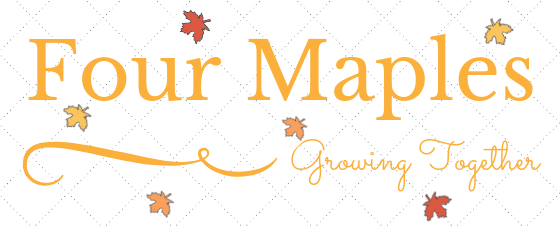But before I do that, I would like to share a few thoughts from well seasoned homeschool veterans that have helped us shape our home education experience - these guidelines have been critical in our selection of homeschool curriculum and how we approach education in our family. I hope these words encourage and inspire you to love and enjoy learning with your child as much as it has encouraged us!
- Teach to the child, not to the curriculum: Your child was made completely unique. Because of that, your child (just as every adult) learns and experiences things in his/her own unique way and in his/her own unique pace. You child might love worksheets and checklists, or might prefer games and manipulatives (things to hold/manipulate for better understanding). Your child might primarily be a visual learner, or an auditory learner, or a kinesthetic (hands on/experiential) learner - and that is a good thing! He/she was created that way for a purpose, and we should work with those given abilities and not against them.
Dr. Kathy Koch, founder of Celebrate Kids, Inc., spoke on this topic at the Midwest Homeschool Convention last year - she identified different giftings as "multiple intelligences." Some of the examples she gives are "word smart," "people smart," "body smart," and "music smart." You can link to her page here.
You might have other considerations to take into account as well. Your child might struggle with a particular type of learning (children who are extraordinarily gifted in one type of learning tend to struggle in other areas). He/she might have learning challenges, developmental delays, or other factors that might impact their ability to learn certain subjects or skills. Feel freedom to adjust your curriculum and your expectations to best fit your child's needs, and not the other way around. In teaching, primarily focus on your child's abilities as you encourage them in areas of difficulty.
- Any part of life can become a learning experience: Broaden your definition of what learning and education can be. The main subjects a child typically learns in the early years are reading, math, writing, and life sciences (the world around us). Why do we learn these skills? We learn them because they are the foundation of all other subjects, but also because they are relevant and necessary in our lives! So why not demonstrate that in the way you go through your day with your children?
For younger children, a trip to the grocery store is full of learning possibilities. Play an ABC game and find items that begin with each letter of the alphabet. See/touch/smell different foods and talk about where they come from. Practice basic math concepts by counting items in your cart or have them find the aisle number you need ("Okay, oatmeal is next on the list! That is in Aisle 7 - who can find Aisle 7 first?"). Do laundry together and let your children sort items by color/texture/size. Plant and care for a garden together and learn how different fruits/vegetables grow. Go for a walk in the park and count how many different birds/animals you see and their features. All of life is an opportunity to learn and engage our children's (and our own) curiosity - and that encourages a love of learning and curiosity that children will take with them long after they have mastered their letters and numbers and have moved on to more advanced subjects. (FYI: This principle applies to older children as well!)
- When possible, let your child's interests guide your lessons/activities. Does your child love trains? Go to the library to check out books about steam and diesel engines (picture books and research books). Plan a trip to a nearby railway museum. Find a free train themed alphabet worksheet (example: I just searched in Google Images for "alphabet train worksheet preschool" and found this free worksheet - sweet!). Teach them math and counting with train-themed activities (last year, we drew a train track on a piece of paper and used graham crackers to be train cars - we practiced basic addition as we added more cars to our track).
This is actually how we began our tradition of Science Fridays. My kids L-O-V-E science, and the curriculum we had chosen for the year wasn't really meeting their needs or level of interest. So I asked them what they would like to study for science, and they gave me a couple of topics that they were keenly interested in: Ocean life. Space. Bugs. From there, we broke the subjects into 2-3 month unit studies and put together short weekly lessons, mostly drawing from different websites on the internet for related worksheets, activities, and videos (NASA, Discovery network, PBS, and many talented homeschool parents, to name a few). The kids love it, and it gave me a tangible way to encourage and respect their interests and celebrate how God has uniquely made them.
So whatever you do, make it fun, engaging, and relevant to your child's abilities! It will help you sustain and enjoy this labor of love that is homeschooling, and - more importantly - it will encourage your children to embrace their curiosity and to love learning and explore the world around them.



No comments:
Post a Comment